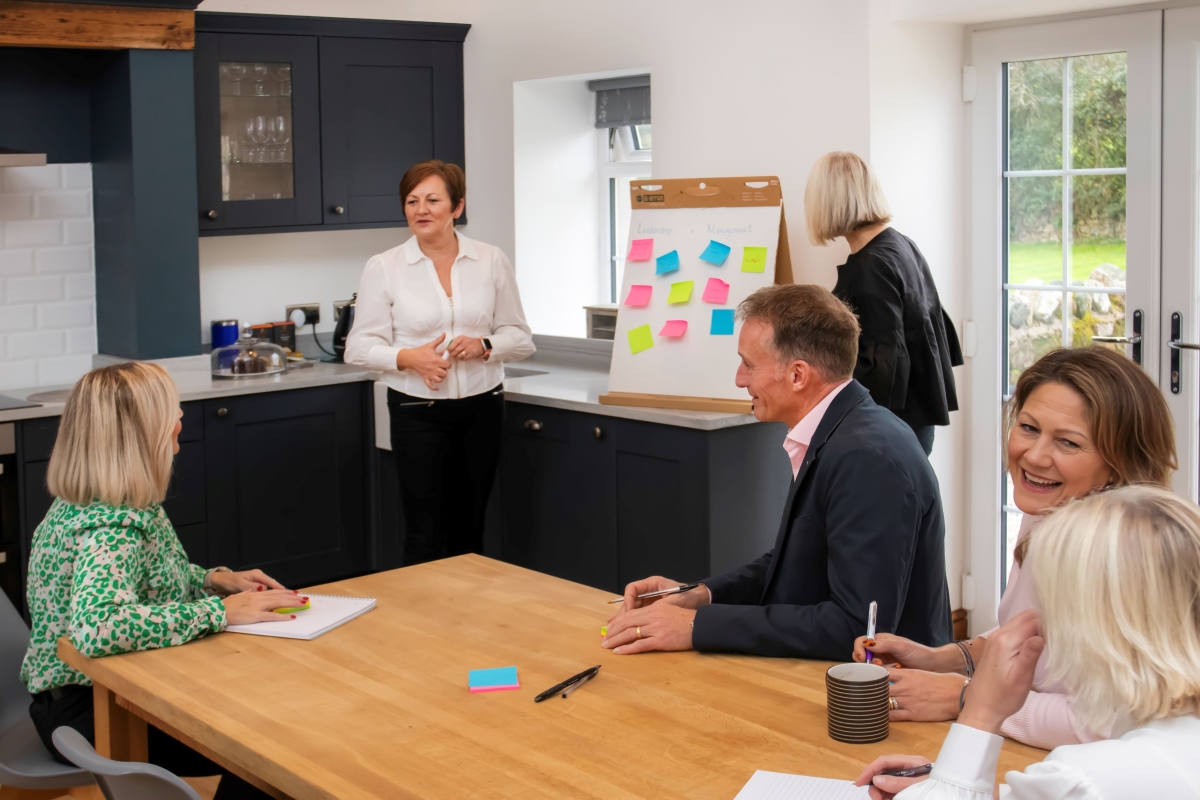Bridget Phillipson speaks at Times Education Summit

Bridget Phillipson MP, Labour’s Shadow Education Secretary, spoke at the Times Education Summit, today (8 June 2023).
Read below to find out what she said.
I want to thank you all, especially Rachel for inviting me today.
It should be a truth universally acknowledged that high-quality education for all our children is crucial to delivering the better society they deserve, but the reality that the Times Education Commission was set up to address, is that it is not, and for too long has not been. And that needs to change, and I hope that the Commission plays its own part in reversing that decline.
It is Labour that is the party of education. That was the case 26 years ago, when I was myself at secondary school, and Tony Blair set out the priorities of the next Labour government. It was the case throughout thirteen years of investment matched with reform right across our school system, when we saw an unflinching determination to drive up standards and attainment for all of our children.
And it is the case today, when we have laid out clear plans for how we will end the tax breaks which private schools enjoy, and put that money into more teachers, better training for school staff, better support for heads, better mental health support in our schools, and better careers guidance for all our children in all our schools.
But as you all know, education is about more than schools. I mean that in three ways in particular. First, it starts earlier, and it goes on for longer. From early years education, through school, and on to college or university, and indeed all our lives long if we are to ensure our people continue to thrive in the changing world ahead of us. So just as early years and childcare needs to be thought of as part of our education system, so too are universities, which are not merely one of the great public goods of our society, but one of our most successful export industries; and so too are the colleges and apprenticeships which provide working people with the skills they need, not just to get jobs, but to keep them; not just to get by, but to get on.
Secondly, it is deeper, and richer: the breadth of the curriculum in the early years does not hold, and the curriculum narrows, not always helpfully, as the years go by. The opportunities children get outside school are important just as the teaching within school is important. Lest that be misunderstood, let me be clear: Maths and English are vital. The children who are failed when schools and government forget that they aren’t middle-class children. They are the poorest children, with the toughest lives, with the least stable homes, whose parents have the least secure employment. They are the children for whom my party was founded. Which is why our critique of the government on maths isn’t that they want too much of it: it is that they will the end, but not the means. But education means more than literacy and numeracy. It means being able to express yourself: to participate and engage, to speak up and speak out, as well as to know and to do. Education is not merely about today but about tomorrow: not just the individuals, but the society. And we want our society to be not merely an economic success, not merely healthy and sustainable, but also plural, tolerant, egalitarian, noisy, resilient: above all, democratic. And that means our young people being not merely ready for work, but ready for life.
And thirdly, education is about more than schools, because ultimately schools are institutions, just as nurseries, colleges and universities are institutions. But education is about people. Institutions are the furniture of our education system, not the purpose. We have ended up in this country with a schools system of extraordinary complexity – of academies and maintained schools, of regional directors and inspectors, of funding agencies and local authorities, where ministers have too obviously lost sight of the purposes that education is there to serve. The Tories literally cannot see the children for the schools system. The better Britain which the next Labour government will build, will come not from obsessing about structures, but from a fresh focus; a focus that draws on that longer, richer, conception of education.
And that comes from my own life, and my own family, and their own commitment to the power of education.
My family came to Britain as immigrants, from Ireland. My grandfather arrived in Scotland in the 1920s with his parents and his older sister. Now anyone who has read the Times Education Commission’s report will know of the importance of libraries, even if, somehow, they did not already. He was taken, as a small boy, to a library, by his older sister, because, despite the unforgivable poverty to which so many of Britain’s working people were condemned in that generation, they knew then – as we all here know now – that nothing is more important than education. My grandfather would not have hesitated for a moment to say that libraries, and his schools in Scotland, changed his life for good.
After the war, when peace came, he trained as a nurse and then became a teacher himself, training the next generation of nurses for the National Health Service in the northeast of England. He gave himself to education, and to passing that torch, of ambition and opportunity, to those who came after him. He read with me when I was a child, sent me books till his dying days. My grandfather learnt as a young boy in Glasgow, a lesson he taught all my family. It’s a lesson you all know, that every government minister should know. Learning begins in childhood, but must never stop. A love of learning – that we carry with us all our lives long – is the richest gift of all. That whatever hand our children are dealt, they have the chance to shape their own future.
Now I went to a school that shared those values, that vision. That saw the value and worth in each and every one of us. That saw us not for where we came from, or how well we’d done last year. But for the human beings that we were and could be, the aspirations we had and the futures we deserved. My school didn’t just have a sense of what was right: it was effective and successful in delivering on its vision. Not all schools were like that. Not then, and sadly not now either. So I was lucky. I know that. I’m not here because I was born to be: none of us should be. I’m not here simply because of hard work and determination: that matters, but it isn’t enough.
And that’s why I believe that life should not come down to luck, that education must be about opportunity. So I am deeply proud that soon I’ll be launching Labour’s mission on opportunity with Keir Starmer. Education is at the heart of that – can never be the whole of it, but is always at the heart of it.
Everyone deserves a first-rate education. So my watchword as Education Secretary in the next labour Government will be simple: excellence is for everyone. And just as the Times Education Commission set out so many debates in the education sphere, and so many of the steps we need to take, so in the weeks ahead I will be laying out more of Labour’s vision, and more of Labour’s ambition.
And the contrast with the government is stark. Last summer they introduced, and then abandoned, a Schools Bill in the House of Lords that was long on needless micromanagement, and short on ambition for children. Nothing on recruitment and retention. Nothing on inspection. Nothing on curriculum. Nothing on early years.
The Deputy Prime Minister might be proud of his party’s record. He shouldn’t be.
I said our system of education is more than schools: that at its best it is longer, that for all our children it should be richer, and that it must be focused on children & young people, not simply the institutions within it and through which those children pass. I want to speak, briefly, to each of those. Last week, I set out the direction of Labour’s thinking on student finance. As Keir said last month, the next Labour government is not going to be able to do all the things we might want to do. The Tories have crashed the economy. They have made the student finance system worse, even since the last election. Public finances are going to be tight. But there is something else.
I don’t want anyone to be held back from going to university. I don’t want anyone to think it isn’t for them. It might be 50% of children in some parts of this country go to university. It’s a long way from that in my community. It’s precisely because those opportunities matter, that we have to address them earlier. The priority for extra spending in our education system under the next Labour government, will be and must be, delivering better outcomes earlier in young people’s lives. It is why we will reimagine the childcare system in this country, from the end of parental leave to the end of primary school.
It is why we will raise tax on non-doms, on the global super-rich, and invest in breakfast clubs for primary school children – in every school, for every child – because the evidence is clear on its effectiveness in improving attainment for our children. Because it’s about the club, not just the breakfast. Because attainment gaps open early, and they need tackling early.
So my focus, within education, is early. That might not always be a popular choice. But I am in no doubt that it is the right choice. Right for the society we want to build. Right for the economy we need to grow. Right for the sort of country Labour will deliver.
And when I say I want education to be richer, I mean that too. Again, the report of the Commission was clear. I don’t criticise any parent for the choices they make, the school to which they send their children. I mean that. I know that many parents choose private education because they see, as I do, what thirteen years of Conservative failure has done to our state schools. They see the opportunities that children in private schools have. They see the facilities, gleaming, not crumbling. They see the confidence of the young people they turn out. They see the wide and rich conception of school and education, a curriculum full of enriching opportunity. They see all that and they want that for their children. They don’t want their children to be failed by the Conservatives.
I don’t want their children failed by the Conservatives either. I don’t want any children failed by the Conservatives. That’s why I am determined that ending the tax breaks private schools enjoy is about the investment in our state schools that enables them. It is about making every state school a school to which parents are proud to send their children. It is as simple as that.
And to do that, we need to change the way our schools system works. Labour is not in the business of disrupting good schools. But the system of accountability we have isn’t working as well as it should be. Too many of our young people leave school neither ready for work, nor ready for life. If despite that, around four in five of our schools are rated good or outstanding, then either the government’s idea of good isn’t good enough, or Ofsted isn’t identifying it correctly. Whichever it is, it isn’t good enough. Inspection is there for parents, for government, for heads and for schools, but above all, for children. For the standard of their education and for their safety at school. Labour believes in inspection precisely because we are the party of high and rising standards in our schools.
And if our current inspection system is letting them down, then Labour’s view is simple: it needs to be better. That is why Labour will change Ofsted, for the better. An end to the one-word summary judgement. A richer scorecard, showing what needs to improve, where things are right, and where things need to be better. An annual inspection of safeguarding issues. There are schools that went a decade without any inspection under the Conservatives. I have two words for that. Requires improvement. And under Labour that improvement will come.
And inspection is not the only part of our system that needs to change. The government expects schools to be part of multi-academy trusts, but a multi-academy trust cannot open a school. Schools of all sorts benefit from a strong partnership with a local authority, but a local authority cannot open a school. The national curriculum is centrally important, but one of the deep ironies of the culture wars the Conservatives stoke on the curriculum, is that they had set a target of making the National Curriculum, their great achievement of my own childhood, binding on precisely no schools at all.
It is time for change, and change is coming with Labour. Now I know that will not be easy. Because the Britain we inherit will be a challenge far beyond 1997. Public finances wrecked. Credit ratings slashed. Across our public services, waiting lists at record levels, backlogs beyond imagining, buildings literally crumbling.
Schools are no exception. Teachers, support staff, and leaders overstretched. Buildings in such a bad state of repair the government won’t publish their own surveys.
But I want to leave you today, clear on one thing. Just as in 1997, we will fix this. We may not do it in a day, or a year, or a term, but fix it we will. Once again it will fall to Labour to deliver the change our children need. We have the ambition to match the challenge. The government Keir leads will define itself, not against the mess we inherit, but through the future we bequeath. Putting children, education, and families at the heart of the challenge.
Putting these issues centre stage in our debates. Defining the difference between the parties, not on who promises what for today, but who can deliver for our children tomorrow.
Thank you.











Responses